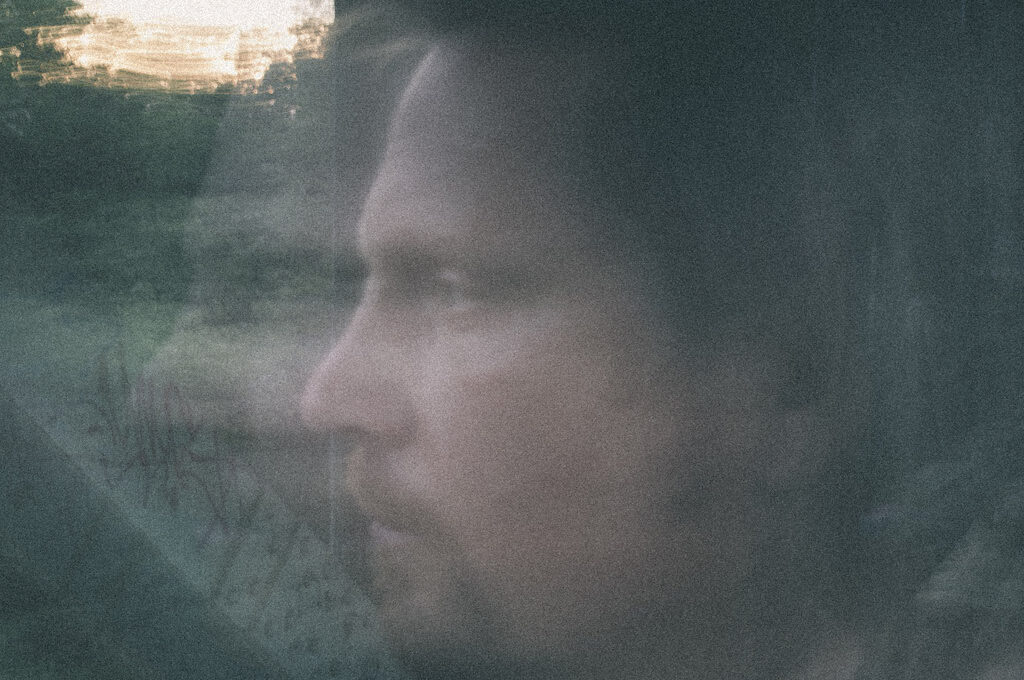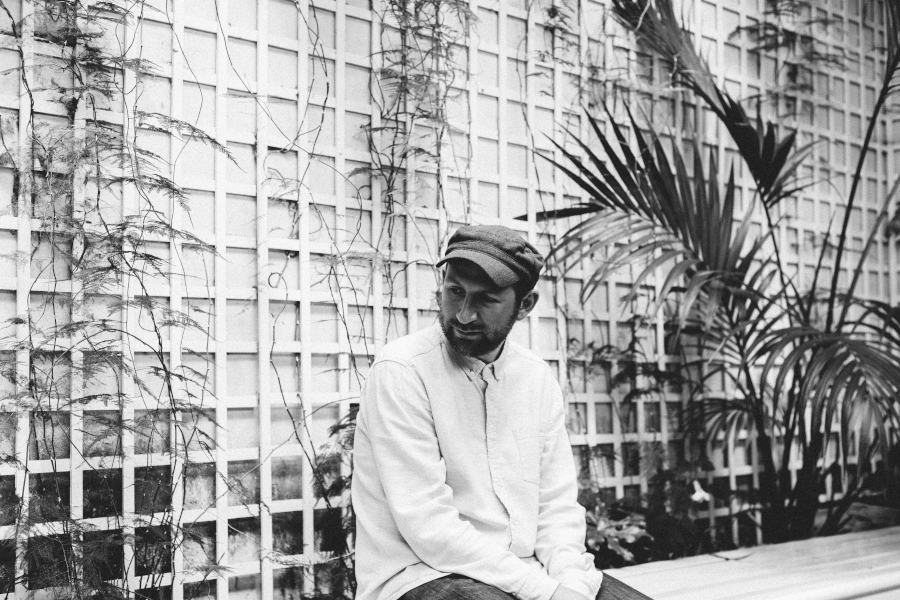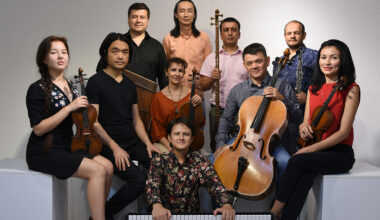The idea of initiating a new project like Hounah had been on Daniel Nitsch’s mind for a long time. It took concrete shape when he met musicians with whom he could enhance and realize the idea: pianist Johann Blanchard, singer Lena Schmidt and guitarist Marten Pankow. They joint Hounah, and with them he is now embarking on the long-planned journey back to his first music experiences, creating a music biography project that tells of how his own musical work began, simultaneously looking to where he sees Hounah’s musical future. Influenced by trip hop and hip hop, downbeat, jazz, electronica and ambient.
Several European countries are united in the “Hounah” circle of friends. And this is neither a coincidence nor a novelty: from the late 1990s on, Daniel Nitsch has initiated, launched, produced numerous and extremely diverse musical projects. If one takes a look at the results, two things can be recognized: Nitsch draws ever new inspiration from alternating collaborations. He keeps on forming something new from a broad range of own ideas, from impetuous creativity and the aforementioned exchange. He does not rest on the tried and tested, enjoys experimenting and refuses to be pigeonholed in terms of music and content – not only because of this, but also because of the way he sees himself. He obviously doesn’t like any preconceived patterns, being mentally on the way – and this beyond conventions. Not only as a musician, but also as a human being: thinking politically, questioning critically, struggling not only for understanding but also for change through deeper reflection. And so this journey to his roots is by no means a résumé, not a retrospective, but the acceptance of a mental challenge, a deeper look, a feeling. In order to learn something new, to find new inspiration. Not to stand still. To set out on the path. On a journey to a Broken Land…
FACTS
1. All it takes to make the moment special is a little bit sensitivity.
2. It is quite simple: I am vegan because it is not necessary that other living beings have to die for me.
3. “Waste no more time arguing about what a good man should be. Be one.” – Marcus Aurelius
QUESTIONS
1. What is the biggest inspiration for your music?
That’s an incredible number of things. Often it’s the memories of certain sensations: Concerts that happened a long time ago. The soundtrack of an old movie. Or an almost forgotten drum groove in a jazz song.
But sometimes also everyday sounds like the rattling of the streetcar wheels.
There’s so much that I capture for myself.
2. How and when did you get into making music?
In the mid-90s when I was still in school, some friends and I started making music with computers. There were the first programs that were easily accessible. I also often hung out in a youth club with a small recording studio. There were other youngsters too. Young rock bands, ambitious Hip-Hop-DJs, Breakdancers. Somehow everything came about from this and from the passion to collect different music.
3. What are 5 of your favourite albums of all time?
I really have a lot of albums that I like very much. Each maybe in a different mood. But I’ve heard the five mentioned here really often in a loop.
Massive Attack – Blue Lines
Beastie Boys – Ill Communication
Portishead – Dummy
Eddie Vedder – Into the Wild
Jon Hassell – Vernal Equinox
4. What do you associate with Berlin?
Sometimes I think everything is possible. But sometimes I also feel lost. Everything can be so individual that it is uniformed again.
But Berlin is also a place for me where I can work really well in the studio with friends and other musicians. A place where nightlife can take on a completely different meaning and depth than anywhere else.
5. What’s your favourite place in your town?
I live in a small suburb very close to the Baltic Sea. There is a coastal forest that always attracts me. I really enjoy being there with my family, but also alone. Depending on the season, depending on the weather, you can always discover something different there. Fallen trees. A wild sea. A stranded seal. Definitely a place with its own atmosphere.
6. If there was no music in the world, what would you do instead?
I think I would paint or maybe try to write a book. There is a creativity in me that wants to get out. And this creativity would find its way.
7. What was the last record/music you bought?
That was actually a well-known classic that I previously only had on CD and digitally and that I really wanted to have in a high-quality version on vinyl. – Miles Davis – Kind of Blue – Nothing really new but something good for my collector’s heart.
And digitally I bought Andy Stott’s great new album “Never The Right Time”.
8. Who would you most like to collaborate with?
For my current album I have been able to work with some wonderful musicians with whom I have always wanted to work. – Marten Pankow, Johann Blanchard, Lena Schmidt, A-F-R-O
When I think of well-known names, it would be great to work with Björk, Beth Gibbons or Hope Sandoval one day. – It is allowed to dream.
On another artistic level, I am also thinking of the choreographer Sharon Eyal.
9. What was your best gig (as performer or spectator)?
This is a question that I find very difficult to answer. There have been so many very different shows in recent years. I also always experience that very much in the moment. Sometimes what feels great in the moment is quite normal with a little distance.
But I would like to say that I enjoyed the performances at the Golden Pudel and at the Fusion Festival very much.
As a spectator, many years ago I was very touched by the concerts of Björk and the Beastie Boys.
10. How important is technology to your creative process?
No question at all. Technology is of central importance to me. Basically, I’ve stayed true to my origins. Most of it happens in the computer or with the synthesizer. Of course, external recording techniques have been added and are also essential for me. But in the end, everything ends up in my Computer. I also deal a lot with technical innovations. There are a lot of interesting things happening that can make artistic work easier but also change it. You have to find your way there.
Artificial intelligence will continue to be an interesting topic. A lot of things will still happen there and everyone will have to find a way to deal with it or not.
11. Do you have siblings and how do they feel about your career/art?
I have a younger sister. I think she follows what I do. In the past, she was sometimes a guest at my local shows. But overall, music plays a smaller role in her life than it does for me. But that’s okay too. And I’m still always happy when she likes my music.
Photo © Rico Burnecki


